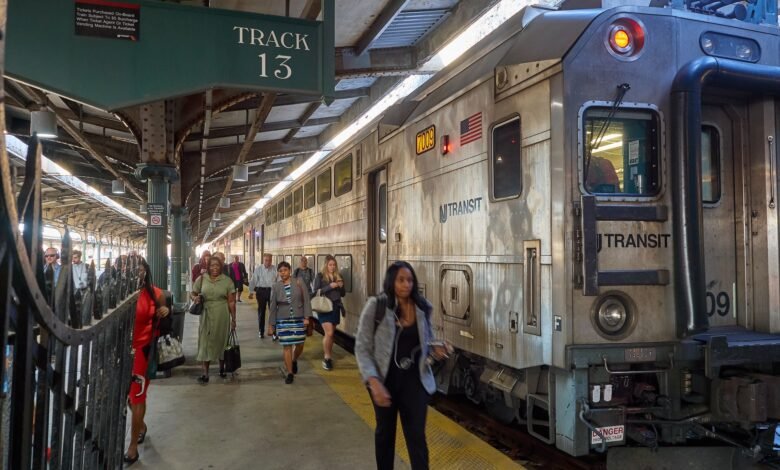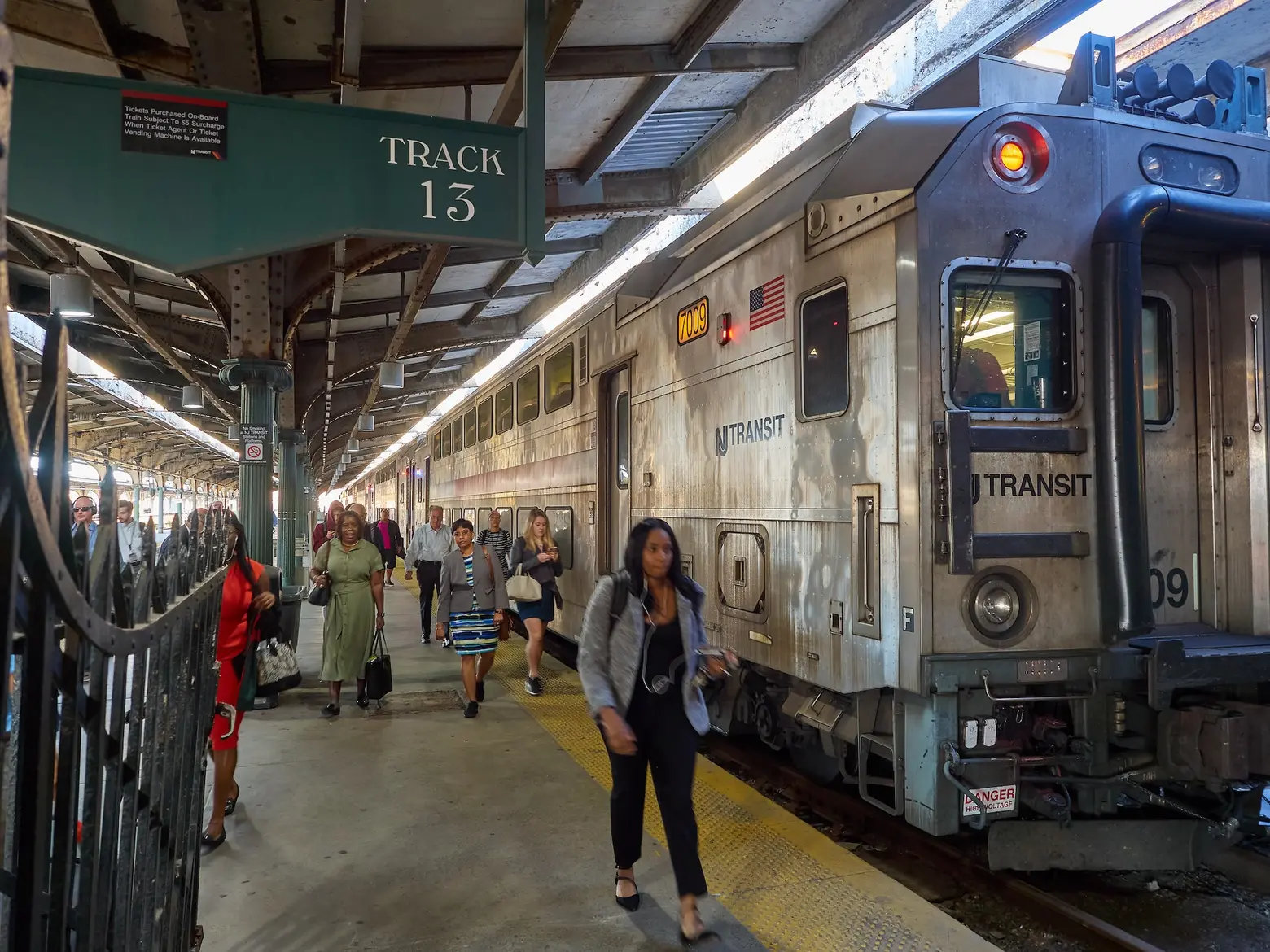NJ Transit strike ends, service to resume Tuesday


NJ Transit and the Brotherhood of Locomotive Engineers and Trainmen (BLET) reached a tentative agreement on Sunday, ending the first strike at the agency in 42 years. Regular weekday train service will resume on Tuesday, May 20, giving workers a day to inspect and prepare tracks and rail cars. The strike began on Friday when 450 unionized workers walked off the job over engineers’ wages. While details of the agreement have not been released, Gov. Phil Murphy called the contract settlement “fair and fiscally responsible” with a “generous wage increase” for union members.
“This agreement reflects the commitment of both the BLET and NJ TRANSIT to remain at the table engaging in productive conversations, and I commend them both,” Murphy said. “Most importantly, it ensures the resumption of rail service for the 100,000 people who depend on our rail system on a daily basis.”
According to the New York Times, Kris Kolluri, president and CEO of NJ Transit, indicated that the agreement involved concessions by the engineers on certain work rules that would help cover the cost of their desired wages. Kolluri did not say how much the strike had cost the agency, but estimated that it would cost roughly $4 million per day.
The tentative agreement marked the end of the first NJ Transit strike in more than four decades. The last strike occurred in 1983 and lasted roughly three weeks. Another walkout was narrowly avoided in 2016.
Engineers had demanded pay parity with their counterparts at nearby commuter railroads, like the Long Island Rail Road and Metro-North, as 6sqft previously reported. According to the union, those agencies pay their engineers roughly $10 more per hour than NJ Transit.
Kolluri claimed the union had rejected a contract in March that would have raised the average annual salary of full-time engineers from $135,000 to $172,000. But Thomas Haas, the union’s general chairman, disputed those figures, calling them inflated and stating that the union would have gladly accepted a contract offering that level of pay.
The parties also disagreed on several work rules, including those involving scheduling and staffing levels. In the week before the strike, the union had agreed to 95 percent of NJ Transit’s demands, with the only sticking point being wages, as reported by the Times.
Following another round of unsuccessful negotiations last Thursday, NJ Transit engineers followed through on their threat to strike, walking off the job at 12:01 a.m. Friday, and halting commuter rail service.
Kolluri had recommended riders work from home during the strike, as the supplemental buses only fit about 100 passengers, compared to nearly 1,000 on a full train, and could accommodate just 20 percent of the 70,000 daily commuters who rely on trains to reach NYC.
BLET has been holding out for a new contract for over five years and was the only one of 15 unions representing NJ Transit rail employees that had not come to terms with the agreement in recent years, according to the Times.
Chartered buses will continue to operate through Monday as part of NJ Transit’s contingency plan, offering service from four locations in New Jersey to New York City and to PATH train connections.
Rail cars and infrastructure must undergo safety inspections, movable bridges that were open must be closed in place, and equipment must be at the proper locations to resume.
“While I won’t get into the exact details of the deal reached, I will say that the only real issue was wages and we were able to reach an agreement that boosts hourly pay beyond the proposal rejected by our members last month and beyond where we were when NJ Transit’s managers walked away from the table Thursday evening,” Tom Haas, BLET’s General Chairman at NJ Transit, said in a statement.
“We also were able to show management ways to boost engineers’ wages that will help NJT with retention and recruitment, without causing any significant budget issue or requiring a fare increase.”
The national union will hold a ratification vote by electronic ballot for the 450 BLET members eligible to vote, according to BLET. The agreement also requires a vote by the NJ Transit board at their next meeting on June 11.
RELATED:
Get Insider Updates with Our Newsletter!
Source link




